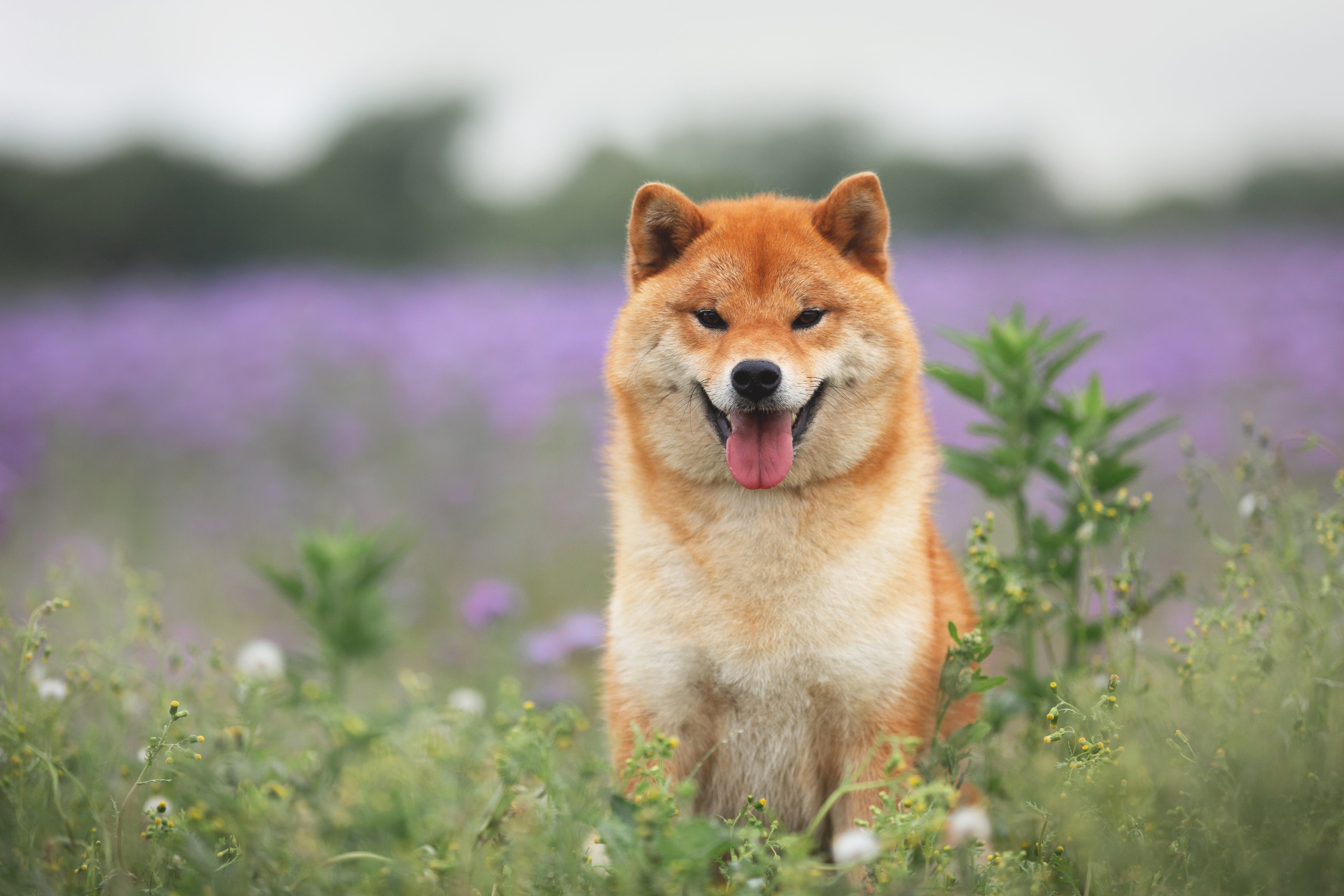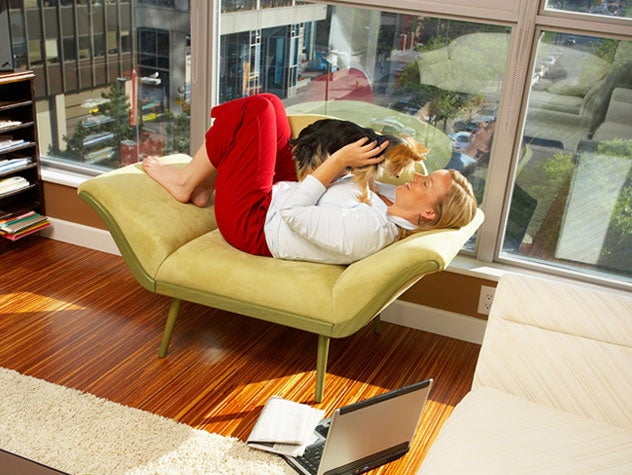Shiba Inu
Shiba Inus have fox-like faces complete with wide, sly smiles and cat-like behavior. The breed is native to Japan and is sometimes referred to as the Japanese Shiba Inu. They are described as bold, spirited, and charming and are known for their independent streak. While they can be self-reliant and even domineering, they do enjoy companionship and bond strongly with their owners.
Breed characteristics carousel
Learn More
Need to Know
- Dog suitable for owners with some experience
- Extra training required
- Generally healthy breed
- Enjoys gentle walks
- Medium dog
- Minimal drool
- Requires frequent grooming
- Chatty and vocal dog
- Barks and alerts to visitors/anything unusual
- Could have issues with unknown dogs but gets along with known dogs
- May need additional training to live with other pets
- May need additional supervision to live with children
- Needs a large yard, preferably in rural or suburban areas
- Can be left alone occasionally with training
- AKC Registered Breed

Personality
Shiba Inus form strong bonds with their humans without being overly clingy. When the headstrong Shiba Inu doesn't get what they want, they might scream like a banshee. The high-pitched sound is their signature chord. A confident and lively dog, they love to be outdoors where they can run free and wild. They are calm indoors, although they can be alert and reserved with strangers.
Shiba Inus are one of the most popular companion dog breeds in Japan and potentially the most ancient in the country. The name translates to “little brushwood dog” in Japanese. Shibas were originally hunters in the mountainous areas of Japan's Chubu region. They excelled at flushing out small game like birds and rabbits, thanks to their agility and compact size. They were almost eradicated after World War II, but a concerted effort to revive the breed began in the mid-20th century. The first Shiba Inu arrived in the United States with a military family in 1954 and the dog has grown in popularity ever since.
The ideal Japanese Shiba Inu owner is someone who can appreciate, manage, and not be offended by their unique personality traits, especially their bossy and vocal streaks. Shibas are energetic dogs who need daily exercise and mental stimulation and owners should set aside time to help them exhaust themselves. They are best suited to those without children or older children who want to participate in exercise and training.
Owners who enjoy hiking, jogging, or engaging in dog sports would be a perfect match for these active pups. Shiba Inus are calm and well-behaved when stimulated physically and mentally.
Despite being relatively small and compact, Shiba Inus require an active lifestyle with plenty of space to run and play. Indoors, they are clean and calm for the most part. Since they can be chatty when bored, excited, or frustrated, it’s ideal not to be too close to neighbors, unless you want them perpetually irritated.
Interestingly, these cat-like canines are known for self-grooming. They need their owner’s help on occasion, too. Brushing Shiba Inus once per week will do the trick.
Shiba Inu dogs are considered challenging to train thanks to their aloofness and obstinate nature, but for owners looking for a dog that matches their wits, this is the perfect breed for you. Positive reinforcement, patience, and consistency will bring rewarding results.
Shibas may find life with very small children a bit too exciting, but they are ideal for older children.
The cost of a Shiba Inu from a breeder is significantly more than the cost of adopting one from a local shelter or rescue. The adoption fee usually covers additional items such as spaying or neutering, vaccines, and microchipping.
Adopting a Shiba Inu
Interested in adopting a Shiba Inu? Here are answers to some common questions about bringing one of these charming dogs home.
Yes, but they would have to have been trained to do so. They would need to become accustomed to the separation since they are generally active pups.
Shiba Inus can have anxiety issues that can be triggered either by separation, noise, or certain social situations.

Learn more about feeding and caring for your Shiba Inu on Purina.
Did you know?
- Cryptocurrency Dogecoin was inspired by a Shiba Inu.
- They are one of nine monument breeds in Japan and the number one companion dog in Japan.
- The word “inu” means dog in Japanese and Shiba means “brushwood.”
- There were three types of Shiba prior to World War II: the Mino, the Sanin, and the Shinshu. The Shinshu is the most similar to the modern Shiba Inu.


